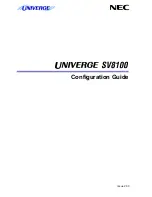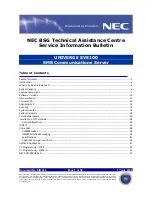
The QRL includes the following information about your system:
●
How-to videos
●
Reference materials, including the Installation and Service Manual, LCD diagnostics, and mechanical overview
●
The system service tag to quickly access the specific hardware configuration and warranty information
●
A direct link to Dell to contact technical assistance and sales teams
Steps
, and navigate to your specific product or
2. Use your smart phone or tablet to scan the model-specific Quick Resource (QR) code on your system or in the Quick
Resource Locator section.
Quick Resource Locator for XC Core XC650 system
Figure 115. Quick Resource Locator for XC Core XC650 system
Receiving automated support with SupportAssist
Dell EMC SupportAssist is an optional Dell EMC Services offering that automates technical support for your Dell EMC server,
storage, and networking devices. By installing and setting up a SupportAssist application in your IT environment, you can receive
the following benefits:
●
Automated issue detection — SupportAssist monitors your Dell EMC devices and automatically detects hardware issues,
both proactively and predictively.
●
Automated case creation — When an issue is detected, SupportAssist automatically opens a support case with Dell EMC
Technical Support.
●
Automated diagnostic collection — SupportAssist automatically collects system state information from your devices and
uploads it securely to Dell EMC. This information is used by Dell EMC Technical Support to troubleshoot the issue.
●
Proactive contact — A Dell EMC Technical Support agent contacts you about the support case and helps you resolve the
issue.
The available benefits vary depending on the Dell EMC Service entitlement purchased for your device. For more information
about SupportAssist, go to
134
Getting help



































